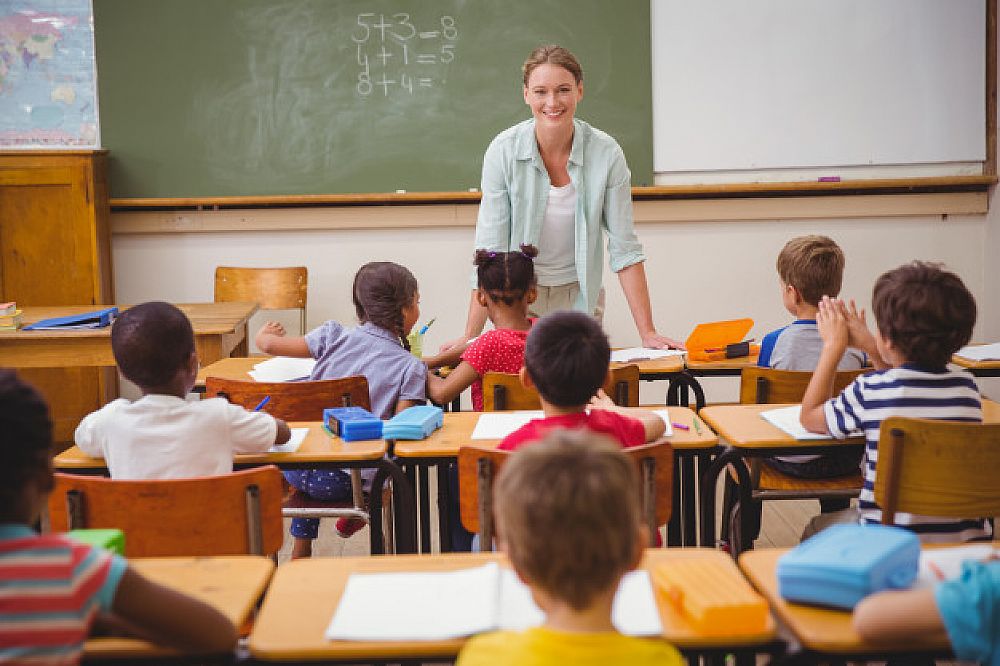Enroll in Primary Science Tuition Singapore for a Strong Science Foundation
Enroll in Primary Science Tuition Singapore for a Strong Science Foundation
Blog Article
Checking Out the Various Mentor Strategies in Key Science Education Today
Inquiry-based understanding, hands-on experiments, and the integration of innovation are redefining just how educators involve young minds. In addition, collective methods and set apart instruction are being used to cater to the varied requirements of pupils, enhancing both interaction and understanding.
Inquiry-Based Understanding
Inquiry-Based Discovering (IBL) is a pedagogical method that urges students to discover scientific ideas via wondering about, investigation, and hands-on testing. This method emphasizes the function of trainees as energetic individuals in their knowing, advertising essential thinking and analytic skills. By engaging with real-world inquiries, pupils become interested and determined, which boosts their understanding of scientific principles.
In IBL, educators work as facilitators, leading students as they navigate their inquiries as opposed to supplying information directly. This student-centered method enables distinction, fitting different discovering styles and rates. Students create skills in creating theories, creating experiments, and assessing data, which are crucial for scientific literacy.
In addition, IBL fosters cooperation amongst trainees, motivating them to share ideas and searchings for. This collective inquiry advertises social abilities and a feeling of neighborhood within the classroom. The procedure of inquiry urges durability, as trainees discover to accept failing as a tipping stone towards understanding.
Hands-On Experiments
Hands-on experiments are an essential part of efficient science education and learning, enhancing the principles of inquiry-based understanding. These experiments allow pupils to engage directly with clinical concepts, cultivating a deeper understanding via experiential understanding. By controling products and observing outcomes, young students can understand abstract concepts in concrete methods.
Such activities advertise essential thinking and analytical skills, as trainees assume results, conduct experiments, and examine results. This procedure encourages them to ask inquiries, refine their understanding, and establish a clinical way of thinking. Hands-on experiments can be tailored to diverse discovering designs, ensuring that all students have the chance to involve meaningfully with the web content.
Furthermore, hands-on experiments usually motivate cooperation among peers, promoting team effort and communication skills. Functioning in groups allows trainees to share concepts, review searchings for, and pick up from one another, which improves their overall academic experience.
Integrating hands-on experiments right into the main science curriculum not only enhances the discovering setting but additionally cultivates a long-lasting passion in scientific research. By actively participating in their education and learning, trainees are most likely to develop an interest for clinical questions that prolongs past the classroom.

Modern Technology Assimilation
Incorporating modern technology into main science education has become significantly crucial in promoting trainee engagement and improving learning end results. The use of electronic devices, such as interactive simulations, digital laboratories, and academic software, provides pupils with chances to discover scientific concepts in cutting-edge means. These resources assist in a much deeper understanding of complex topics by permitting learners to envision and adjust variables that would certainly be impractical in a typical classroom setup.
Furthermore, innovation integration encourages individualized learning experiences. Students can proceed at their very own pace, reviewing tough principles with multimedia sources, which satisfy different understanding designs. This versatility not just supports private development but likewise cultivates a sense of autonomy in learners.
In addition, technology works as a bridge to real-world scientific research, attaching trainees with current research study and expert payments. Accessibility to clinical journals and on-line databases broadens trainees' perspectives on scientific questions and fosters vital assuming skills.
Collaborative Knowing
Joint discovering plays a vital duty in key scientific research education and learning by cultivating synergy and communication skills among pupils. This technique motivates students to collaborate, share knowledge, and take part in analytical, which enhances their understanding of scientific principles. By getting involved in group activities, trainees learn to verbalize their ideas, listen to varied viewpoints, and bargain services, every one of which are crucial abilities in both scholastic and real-world contexts.

Research shows that collective understanding can lead to increased inspiration and engagement in scientific research topics, as trainees locate enjoyment in shared experiences (primary science tuition Singapore). In addition, this strategy prepares students for future collective endeavors, furnishing them with the abilities required for reliable teamwork in college and professional settings. Ultimately, accepting joint knowing in key science education and learning can substantially improve the discovering experience and promote a deeper understanding of scientific query
Differentiated Guideline

Distinguished instruction can manifest in numerous methods, such as differing the web content, procedures, or items of discovering. For instance, educators may make use of tiered jobs that offer varying levels of intricacy, permitting pupils to work at their particular readiness degrees. In addition, versatile organizing approaches can help with cooperation amongst pupils with various abilities, promoting peer understanding.
Evaluation plays an essential role in this technique, as it educates guideline and helps educators understand each trainee's one-of-a-kind needs. Formative analyses, such as observations and quizzes, can assist teachers in Visit This Link changing their approaches to enhance discovering results. primary science tuition Singapore. Eventually, by implementing separated instruction in main science education, educators can grow a more equitable and reliable knowing setting, equipping all trainees to reach their full possibility in understanding scientific sensations
Verdict
In summary, the diverse teaching methods in key science education, including inquiry-based understanding, hands-on experiments, modern technology combination, joint knowing, and set apart direction, jointly contribute to an extra reliable learning environment. These methods promote critical thinking, problem-solving skills, and a deeper understanding of clinical concepts. By executing these methods, instructors can develop interesting and supportive classrooms that deal with the different demands of students, ultimately fostering a long-lasting passion in scientific research and enhancing academic achievement.
Inquiry-Based Learning (IBL) is a pedagogical approach that urges students to explore clinical principles with doubting, investigation, and hands-on trial and error.Collective discovering plays an important function in main science education and learning by fostering teamwork and communication skills among pupils.Research shows that collaborative learning can lead to raised motivation and involvement in science topics, as from this source pupils locate pleasure in shared experiences.In fostering a comprehensive learning setting, separated instruction emerges as a vital approach to fit the varied requirements and capabilities of trainees in main science education. Inevitably, by carrying out set apart instruction in primary scientific research education, teachers can grow a much more fair and effective discovering environment, encouraging all trainees to reach their complete possibility in understanding scientific phenomena.
Report this page